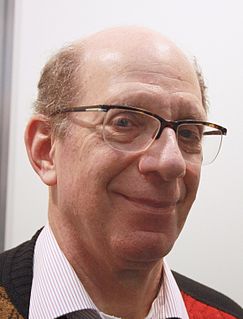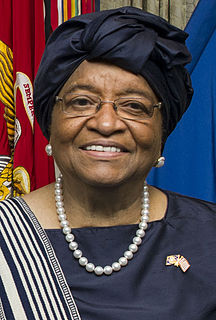A Quote by Tom Peters
Portability of lots of information should not be underestimated.
Quote Topics
Related Quotes
I don't think I underestimated [Vladimir Putin], but I think that I underestimated the degree to which, in this new information age, it is possible for misinformation for cyber hacking and so forth to have an impact on our open societies, our open systems, to insinuate themselves into our democratic practices in ways that I think are accelerating.
In a wild and diverse democracy each of us should be trying to talk to lots and lots and lots of people outside of our own kind of comfort zone and community, and that injunction goes even further for political leaders. They should talk to everyone, they should listen to everyone, and at the end of the day they should have a mind of their own.
The Internet, like all intellectual technologies has a trade off. As we train our brains to use it, as we adapt to the environment of the internet, which is an environment of kind of constant immersion and information and constant distractions, interruptions, juggling lots of messages, lots of bits of information.
It can be tempting to blame others for our loss of direction. We get lots of information about life but little education in life from parents, teachers, and other authority figures who should know better from their experience. Information is about facts. Education is about wisdom and the knowledge of how to love and survive.
Data isn't information. ... Information, unlike data, is useful. While there's a gulf between data and information, there's a wide ocean between information and knowledge. What turns the gears in our brains isn't information, but ideas, inventions, and inspiration. Knowledge-not information-implies understanding. And beyond knowledge lies what we should be seeking: wisdom.
I don't think we should have less information in the world. The information age has yielded great advances in medicine, agriculture, transportation and many other fields. But the problem is twofold. One, we are assaulted with more information than any one of us can handle. Two, beyond the overload, too much information often leads to bad decisions.




































